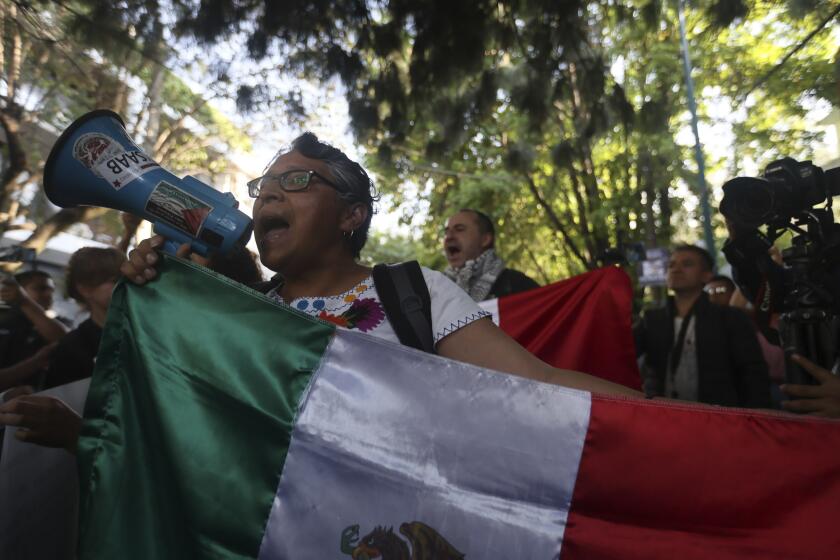Peru’s Keiko Fujimori and former finance minister appear headed for a runoff in presidential race
Keiko Fujimori, daughter of former President Alberto Fujimori, and former Finance Minister Pedro Pablo Kuczynski appeared headed for a June runoff to determine the winner of Peru’s presidential race, partial election results indicated Monday.
Keiko Fujimori received 39.5% of the votes cast in Sunday’s election, while Kuczynski received 22.1%, with more than two-thirds of the ballots counted, according to Peru’s electoral commission, known by its Spanish initials ONPE. About 83% of the first-round ballots were counted by late Monday, officials said.
Kuczynski’s lead over candidate Veronika Mendoza, a socialist member of Congress who had about 18% of the vote, looked to be enough to ensure him the runoff spot against Fujimori on June 5, analysts said. A winning candidate needed 50% of votes plus one to avoid the second round.
Fujimori’s Fuerza Popular party also scored significant victories in the congressional portion of the election and was on track to win at least 65 of the 130 legislative seats up for grabs.
Although the 40-year-old Fujimori, a two-term member of Congress, would seem to be a prohibitive favorite against Kuczynski, polling firms have said the 77-year-old former minister has a chance of beating her in the runoff because of high anti-Fujimori sentiment in Peru.
The elder Fujimori, who served as president from 1990 to 2000, was convicted in 2009 on corruption and human rights abuse charges and is serving a 25-year prison term. A significant portion of Peruvians fear his daughter might bring back his authoritarian ways and say they wouldn’t vote for her under any circumstance.
Also warning of a strong Kuczynski challenge was Boston University professor and Peru expert David Scott Palmer, who said the nearly 40% of votes collected by Fujimori on Sunday could turn out to be the “ceiling” or maximum support among Peruvians.
But Lima-based political science professor Alberto Vergara disagreed, saying Kuczynski may have too much ground to make up. He said the second-place finisher in the first round of a presidential election has never won after losing to the first place finisher by such a wide margin.
Who gains the support of Mendoza voters could be critical in determining the outcome of the June election. Popular especially in southern provinces, Mendoza capitalized on growing sentiment against miners and natural gas developers to mount a late surge in the polls.
Another significant player in the campaign could be Cesar Acuna, a former regional president who was disqualified from the presidential contest in February for alleged misuse of campaign funds. Nevertheless, Acuna’s party is on track to win at least 11 seats in the new Congress and thus he can still wield electoral influence, Vergara said.
Special correspondents Leon reported from Lima and Kraul from Bogota, Colombia.
More to Read
Start your day right
Sign up for Essential California for news, features and recommendations from the L.A. Times and beyond in your inbox six days a week.
You may occasionally receive promotional content from the Los Angeles Times.






